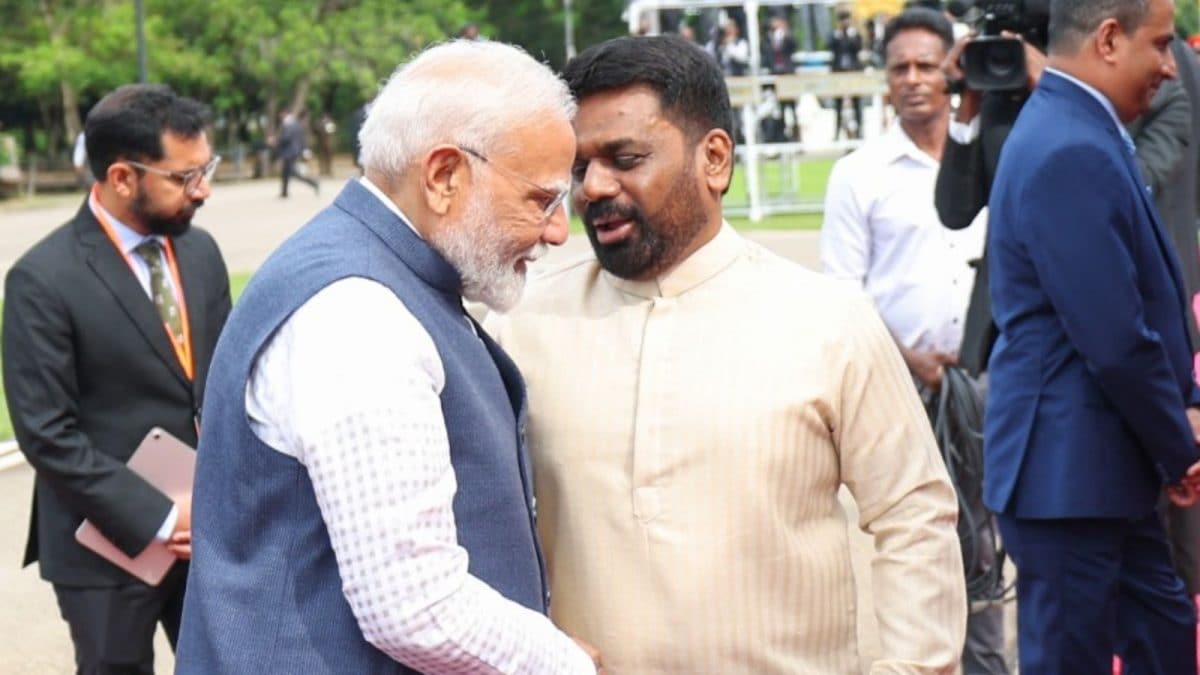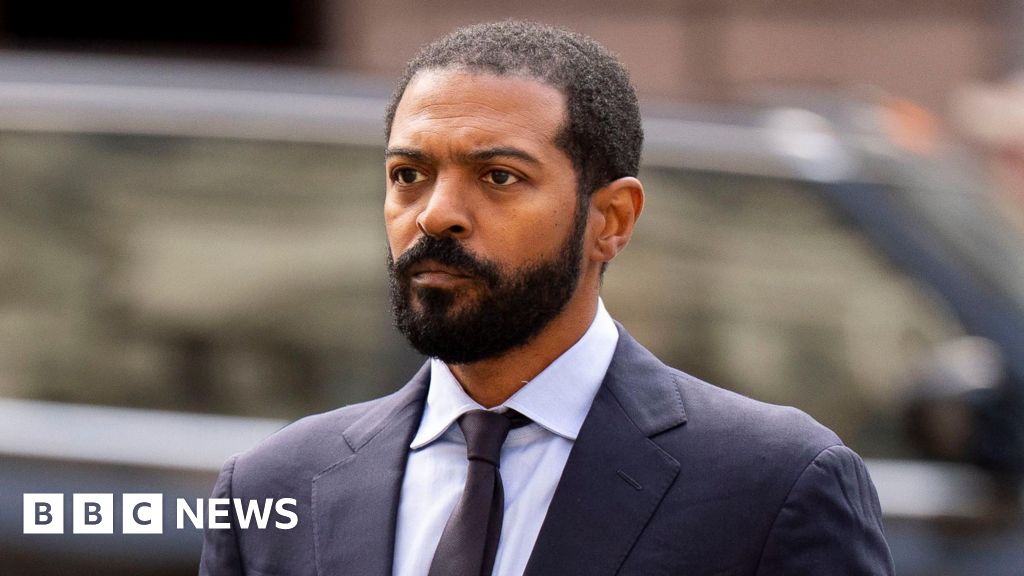Last Updated:
The panel led by Dr Shashi Tharoor was briefed by India’s foreign secretary Vikram Misri

Prime Minister Narendra Modi with Sri Lankan President Dissanayake. File image: PMO
Sri Lanka continues to occupy a central space in India’s Neighbourhood First policy and its MAHASAGAR vision for regional growth, the government told Parliament’s standing committee on external affairs in a meeting on Tuesday. Over the years, it added, the relationship has moved beyond symbolism to become one of India’s most comprehensive partnerships—covering trade, development, defence, and cultural linkages.
Recommended Stories
The turning point came during Sri Lanka’s economic crisis in 2022, when India stepped in with over USD 4 billion in assistance and strong backing at the IMF. That lifeline, which included credit for essentials, fuel, and fertilisers, coupled with humanitarian supplies of food and medicines, reinforced Colombo’s trust in New Delhi.
The panel led by Dr Shashi Tharoor was briefed by India’s foreign secretary Vikram Misri.
Political engagement has remained robust, officials reportedly said. Sri Lanka’s President Anura Kumara Dissanayake, who took office in September 2024 after a sweeping victory for his National People’s Power (NPP) coalition, made India his first overseas stop. Prime Minister Narendra Modi has visited Sri Lanka four times since 2014, the latest in April this year—the first state visit of any foreign leader under the Dissanayake presidency.
On the reports that some members were concerned about the involvement of China in Sri Lanka, the committee chairman, Dr Tharoor, said, “It was a very good meeting, but I cannot give away the content as yet because you have to read it in the report…However, members wanted to understand the influence of China in Sri Lanka, which the foreign secretary deliberated upon in detail.”
External affairs minister Dr S Jaishankar has made six visits since 2019, while finance minister Nirmala Sitharaman also visited Colombo in late 2023. These exchanges have helped push forward big-ticket connectivity projects first set in motion during former President Ranil Wickremesinghe’s visit to India in 2023, members were told.
India remains one of Sri Lanka’s largest trade partners. Bilateral trade in FY 2023-24 stood at USD 5.54 billion, with Indian exports making up the bulk. New Delhi is also Colombo’s top source of FDI—USD 2.56 billion so far—and the single largest contributor of tourist arrivals, accounting for nearly one in five visitors, the officials communicated.
Talks on the long-pending Economic and Technology Cooperation Agreement (ETCA) have resumed, while India has shifted to an investment-led model aimed at reducing Sri Lanka’s debt burden. The package includes modernisation of the KKS Port with a USD 61.5 million grant, USD 20 million in assistance for completed projects, and the gifting of 22 locomotives.
Connectivity has emerged as a major pillar. The Chennai-Jaffna air link was revived in December 2022, followed by ferry services between Nagapattinam and Kankesanthurai in October 2023. A 2023 joint vision statement continues to guide projects such as a proposed land corridor, power grid interconnection, a solar power project at Sampur, and a multi-product pipeline.
Several MoUs were signed during PM Modi’s April visit, giving momentum to these cross-border infrastructure plans.
India’s development footprint in Sri Lanka stands at over USD 7 billion, including nearly USD 780 million in grants. The projects cut across all 25 districts, covering housing, health, education, industry, and livelihood support.
Cultural linkages, particularly through shared Buddhist and Hindu heritage, are another strong connector. India is funding restoration projects at the Thirukoneswaram and Sita Amman temples, as well as the Sacred City in Anuradhapura. Solar electrification of religious sites worth USD 27 million is also underway.
Defence ties have deepened with training programmes, joint exercises, and regular high-level visits. The framework MoU on defence cooperation signed earlier this year affirmed that the security of India and Sri Lanka is interlinked. Colombo has also reassured that its territory will not be used in ways harmful to India’s interests.
The two sides are now focusing on capacity building and human resource development. India will train 1,500 Sri Lankan civil servants over five years and provide annual training slots for 700 Sri Lankans in fields ranging from the judiciary and legislature to media and arts.
Challenges remain, particularly on the fishermen issue, where India continues to press Colombo for humanitarian treatment and early release of detained fishermen and boats. On the Tamil question, New Delhi has reiterated its support for equality, dignity, and justice for all communities, urging the implementation of the 13th Amendment and timely provincial polls.
As Sri Lanka looks to recover economically and position itself as a hub for renewable energy exports and tourism, India’s role as a trusted partner has become indispensable. Guided by Neighbourhood First and MAHASAGAR, the relationship is set to expand further—anchored in mutual trust, shared security, and regional growth, the government communicated.
Thursday’s meeting was attended by committee members from across parties. Apart from Tharoor, the other members of the committee included Congress MP Rajiv Shukla, Samajwadi Party’s Akshay Yadav and Sanatan Pandey, and Shiv Sena (UBT) lawmaker Arvind Sawant. From the BJP, there were Bansuri Swaraj, Sudhanshu Trivedi, Aparajita Sarangi, and Ravi Shankar Prasad, among others.
September 23, 2025, 23:29 IST
Loading comments…
Read More



